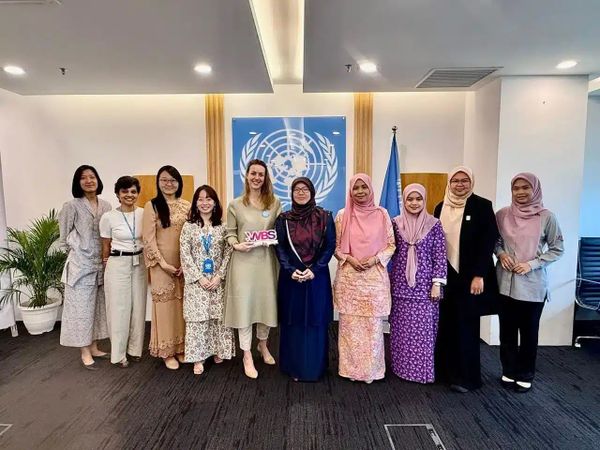By Media Selangor Team
SHAH ALAM, July 20 — Selangor is strengthening its Care Economy Policy with help from the United Nations Children’s Fund (Unicef) Malaysia and the Khazanah Research Institute (KRI).
State executive councillor for women empowerment and welfare Anfaal Saari said they are collaborating with Unicef Malaysia to focus on social protection and early childhood development, particularly during the crucial first 1,000 days of a child’s life.
“This may involve research into child development during those first 1,000 days, which are critical for healthy growth.
“One idea being explored is the creation of a universal grant or subsidy provided continuously by the government to children regardless of parental income background.
“Unicef Malaysia already has an existing collaboration with the Sarawak government on child-related programmes, so we may adopt a similar model here,” she told Media Selangor.
Anfaal had recently led the Wanita Berdaya Selangor (WBS) team to a courtesy visit to KRI to discuss strategic cooperation under the Care Economy Policy.
She added that the state may also work with Sejagat, a portal developed under the policy, to map out existing care institutions, including unregistered ones, to gain a clearer picture of early childhood care providers in Selangor.
As for KRI, she said it will focus on researching time use and valuing care work, particularly unpaid domestic labour mostly done by women.
“For example, women who care for sick family members at home are often unpaid, or paid far less than the actual value of their labour.
“KRI conducted a study on this in 2019, but the sample size was small, only around 100 respondents nationwide. It wasn’t representative of the broader population.
“If KRI can conduct a similar study specifically in Selangor, we can establish a baseline to better inform the state's care economy strategy.”
Anfaal said the state is also exploring partnerships with local and international agencies, including those from Japan and South Korea, to support the 39 strategic initiatives under the Care Economy Policy and attract investment in the care sector.
“We’re keen to explore how foreign companies can bring in relevant technology and invest in Malaysia, helping to expand and modernise the care sector,” she said.
Previously, Menteri Besar Dato’ Seri Amirudin Shari said Selangor was the first state to launch a dedicated Care Economy Policy as part of its preparations to become an ageing society.
The policy is built around five core pillars, namely advocacy and promotion, governance and regulation, caregiver training and workforce development, investment and partnerships, and innovation, technology and data.
Running until 2030, the policy covers care for the elderly, children, persons with disabilities, and support for both formal and informal caregivers.


